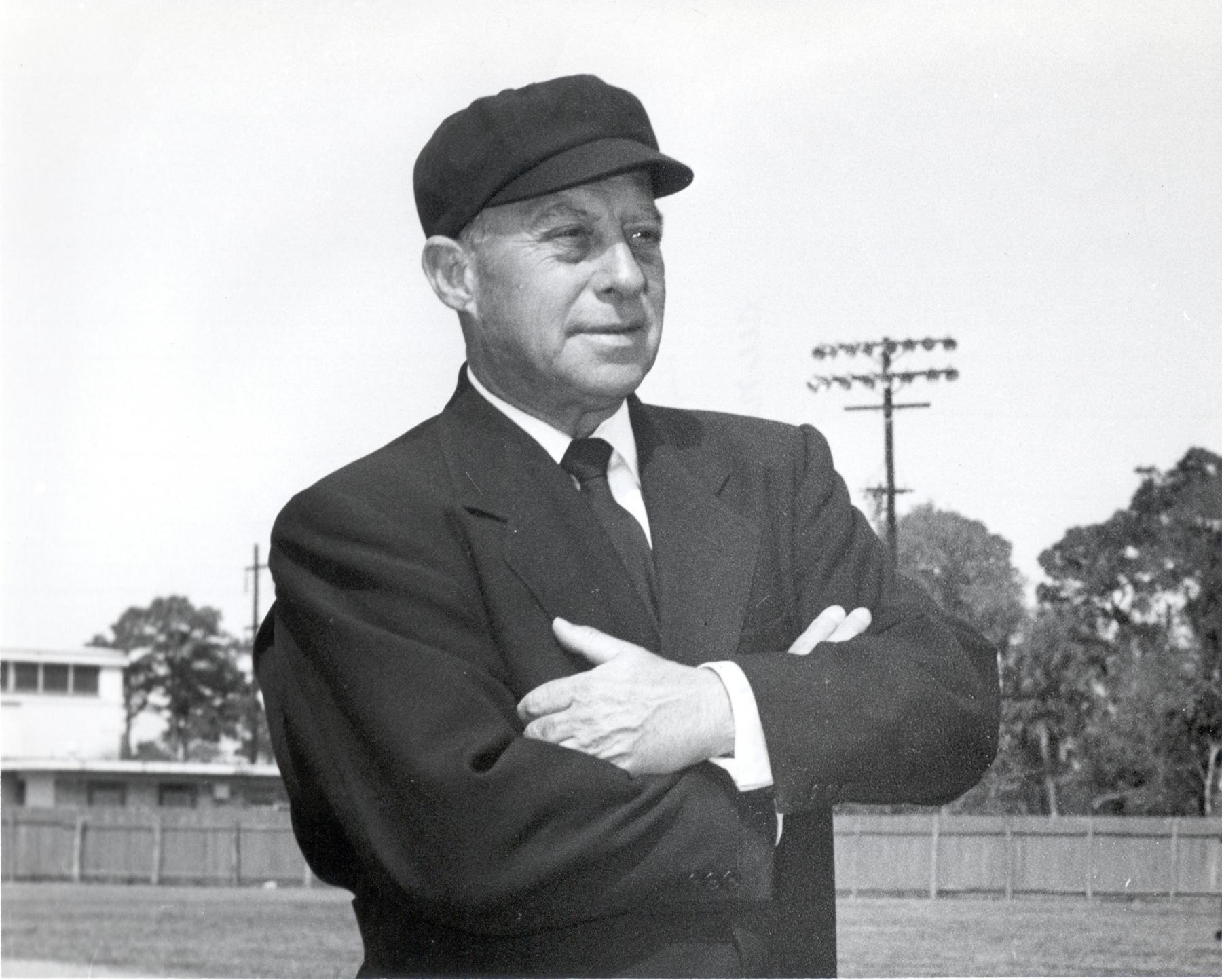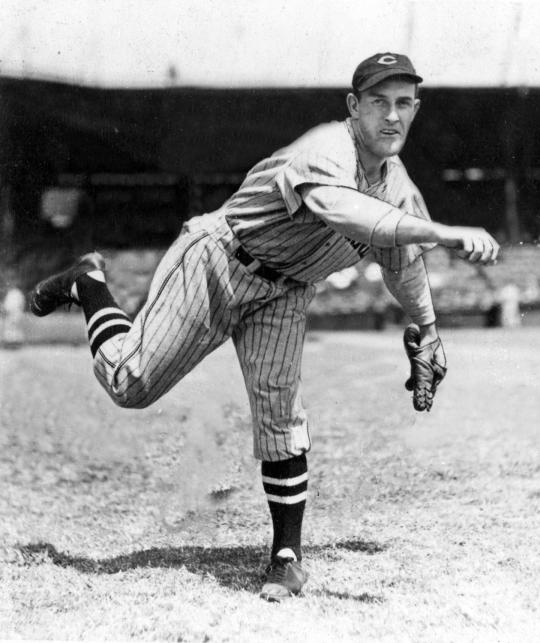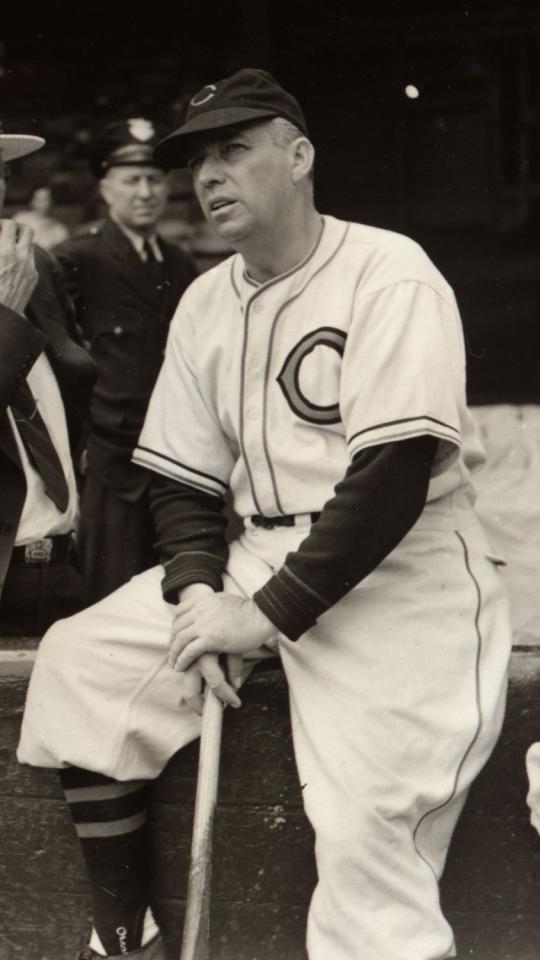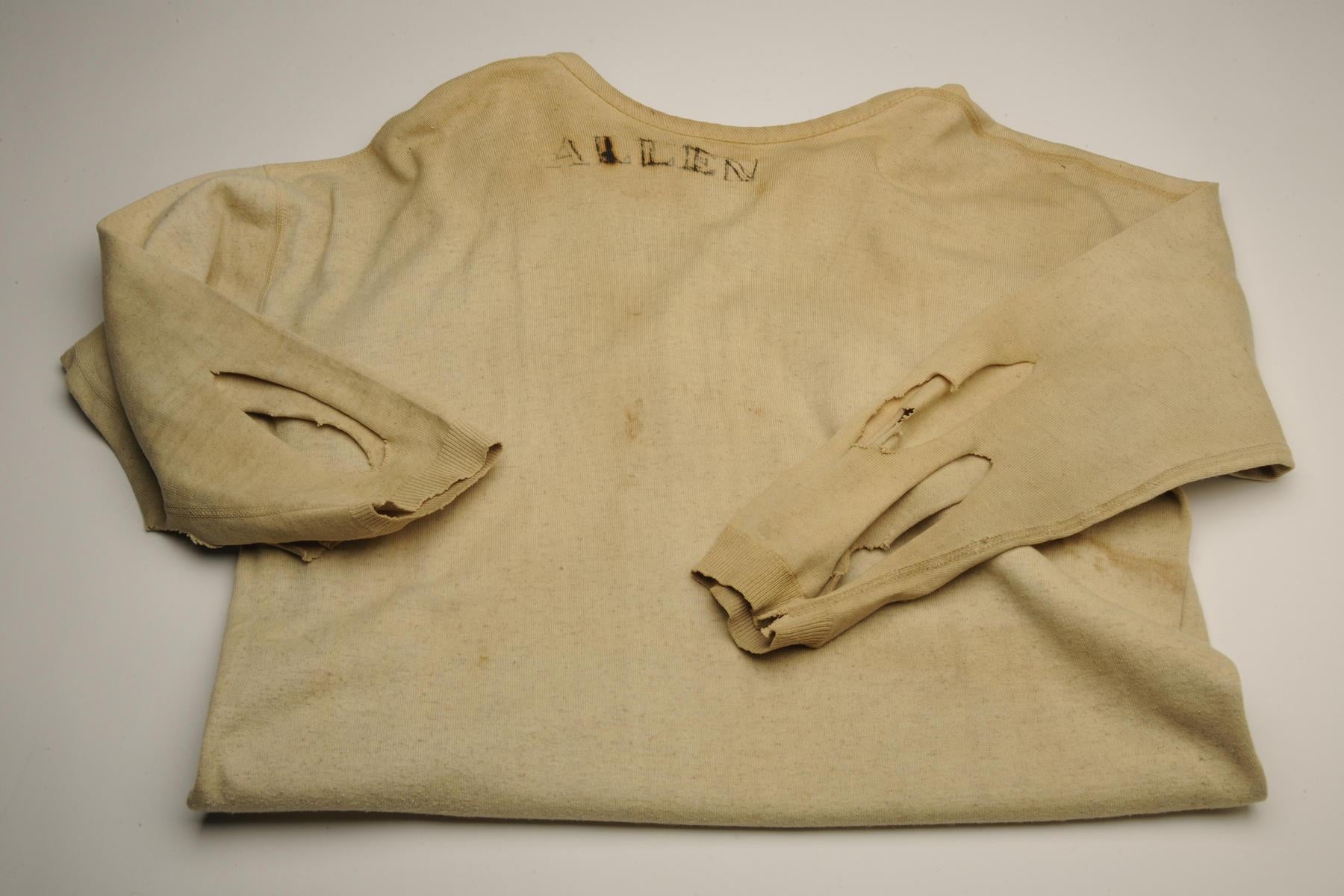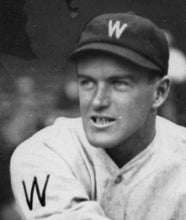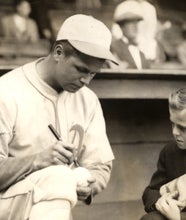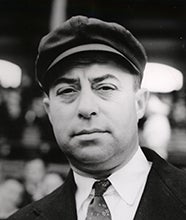- Home
- Our Stories
- The Holy Shirt
The Holy Shirt
Johnny Allen was a pitching star of the 1930s, known as much for his explosive temper as his mound ability. Thanks to one such fiery episode, a cause célèbre of its time, a self-ventilated shirt once belonging to the passionate righty can be found in the archives of the National Baseball Hall of Fame and Museum.
In 1938, Allen, the Cleveland Indians hurler who finished his 13-year career with a 142-75 record and one of the best winning percentages (.654) in big league history, was coming off a season in which he set an American League record with 15 consecutive victories to start a season (since tied by Baltimore’s Dave McNally in 1969).
But on June 7, 1938, during a Tuesday afternoon game at Boston’s Fenway Park, the 33-year-old fireballer allowed unique circumstances to end his starting assignment after only an inning of work.
Though the league-leading Indians would go on to defeat the Red Sox this day, 7-5, the contest is most remembered for what happened after an eventful first inning in which each team scored a pair of runs. Staked to a 2-0 lead, Allen, coming into the game with a 7-1 record, retired the first two batters in the bottom of the first, walked Ben Chapman, then gave up a two-run homer to future Hall of Famer Jimmie Foxx.
After fanning player/manager Joe Cronin to end the first inning, Cronin – another future Hall of Famer – complained to umpire-in-chief Bill McGowan about the tattered sleeves of the pitcher’s sweatshirt worn under the team jersey. McGowan agreed with Cronin and sent Allen to the clubhouse in order to change his shirt.
“Jimmie Foxx didn’t object to my sweatshirt. He got a home run off me. And Chapman got a walk. Joe Cronin protested to McGowan just as a gag,” said Allen a few days after the incident. “In the first inning, while I was perched on second, Joe comes over and makes fun of my shirt. Then, when he comes to bat after striking out the first time, he complains to McGowan just for a rib. And McGowan goes for it. After the game, Joe and the rest of the Red Sox players almost bust their sides laughing.
“Guess I shouldn’t have walked out of the game but I wouldn’t have changed that shirt then and there for the whole American League.”
After McGowan sent Allen to the clubhouse in order to change the shirt, a 10-minute delay forced Cleveland manager Ossie Vitt to investigate his pitcher’s tardiness. After being told he would not take off the shirt in question, Vitt fined Allen $250 and replaced him on the mound with Bill Zuber.
“There’s no doubt that McGowan is right in ordering you to change,” Vitt reportedly told Allen. “After all, the shirt is slit in violation of league rules.”
The rule in question read, according to the umpires’ instructions at the time: “Pitchers will not be permitted to work with ragged or slit sleeves, which have the effect of confusing the batters.”
According to a June 12, 1938 New York Times column devoted to the episode, “The Shirt Off His Back,” written by John Kieran, “The right sleeve was garnished with holes like a balloon-spinnaker hung out on an America’s Cup racing sloop.”
In 1953, looking back on the Allen affair, McGowan said, “Allen had just thrown a called third strike past Joe Cronin in the first inning. On the way out to his position, Cronin said, ‘Bill, why don’t you take a look at his shirt?’ I called Allen and told him it was against the rules for a pitcher to wear a raggedy, slit sleeve – I took the words right out of the rule book.
“When it was time for Cleveland to take the field, no pitcher came out. Vitt rushed out to ask what happened. I told him and he asked me if I’d give him two minutes to convince Allen to take off the shirt and resume play.”
Allen and McGowan butted heads earlier in the 1938 season, the umpire tossing the pitcher in a game at St. Louis on April 28 for disputing his ball and strike decisions.
“Whenever McGowan works a game I pitch,” Allen said, “there’s always been a lot of petty, sniveling work going on. I’ve got a belly full of it. I could stop it if they’d let me. But what can I do? They’d run me out of baseball.”
Cleveland Press sports editor Stuart Bell explained that many of Allen’s most heated issues were the pitcher’s own fault – an inability to control his well-known bad temper.
“It is not a very favorable commentary on the managers and players of the American League that they goad any pitcher on such gossamer digressions, but it also is a very unfavorable commentary on Allen that he falls for the guff and gets mad,” Bell wrote. “He is not a dummy, by any means, and he knows full well that rival managers and players goad him into excesses of temper. But he ought to have gained sufficient control of himself after all his years in the big show to know that his enemies are egging him to temper excesses to confound him.
“There was absolutely no excuse for him walking off the field, whether his shirt sleeves were illegal or not. He owed a duty to himself, his team and the fans who pay their way into parks to do the job he is paid for.”
Within days of Allen’s Boston digression, Higbee’s department store back in Cleveland offered to buy the now infamous shirt and display behind a display window for all to see. The store, partly owned by Indians owner Alva Bradley, paid the defiant hurler anywhere from $50 to $500, depending on the source.
“A department store in Cleveland just long-distanced me with an offer of almost five hundred bucks for that shirt McGowan objected to up at Boston,” said Allen, who was earning a career-high $19,000 playing baseball in 1938, to a reporter on June 10. “And I sold it to ‘em so as to prove Mrs. Allen never raised any foolish children. I got fined two fifty but I’m getting a net profit. Let McGowan laugh that one off.
“They’re going to put it in a window to show our customers back home how excited a guy like McGowan can get over nothing. It’s just like any other sweatshirt except I cut a coupla holes in it for ventilation. I gotta get to my trunk and pack that shirt off to that Cleveland store before they change their mind.”
Soon, behind a window at Higbee’s was a mannequin sporting an Indians full uniform. The jersey’s right sleeve was rolled up, showing off Allen’s infamous handiwork. In front of the mannequin was a printed sign: “This is the shirt that cost Johnny Allen $250.00.”
Later in 1938, Higbee’s donated Allen’s shirt to the new baseball museum in Cooperstown, N.Y.
“When I sent my report in to Mr. Harridge [AL President Will Harridge], I fined Allen $250, too,” said McGowan, elected to the Baseball Hall of Fame in 1992. “But the Cleveland writers made such a fuss that Allen sold the shirt to a Cleveland department store for $600. So he had made $100 on the deal. I hear they even have that shirt up in Cooperstown.
“Later, Johnny went to umpiring. I wonder if anybody ever tried to pull that raggedy shirt routine on him.”
In fact, the oft-temperamental Allen spent a few years in the late 1940s and early 1950s working as a minor league umpire. After seeing the onetime pitcher dressed as a baseball arbiter, a sportswriter reportedly said Allen looked “about as much at home as a camel in a camel’s-hair coat.”
When Allen passed away at the age of 54 on March 29, 1959, the “shirt” episode was mentioned in the third paragraph of his New York Times obituary.
Bill Francis is the senior research and writing specialist at the National Baseball Hall of Fame and Museum

